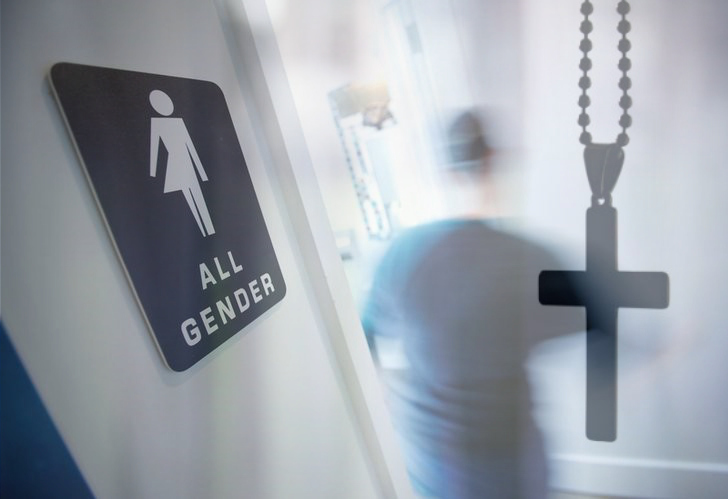Kerby Anderson
In just a few days, the nation’s strictest LGBT non-discrimination laws will go into effect in Massachusetts. According to the latest pronouncements from the state government, even churches and Christian schools will be affected since they are defined as public accommodations.
Any accommodation must allow patrons to use men’s or women’s restrooms as well as locker rooms and changing rooms that are “consistent with their gender identity.” Moreover, it requires that these venues must also “use names, pronouns, and gender-related terms appropriate to employee’s stated gender identity in communications with employee and with others.”
As Christians we believe that sex and gender are essentially the same thing. But the Massachusetts laws instead defines gender identity as “a person’s gender-related identity, appearance or behavior, whether or not that gender-related identity, appearance or behavior is different from that traditionally associated with the person’s physiology or assigned sex at birth.”
It doesn’t take much imagination to see where conflicts will arise between this latest transgender law and Christian teaching and church programs. Most churches hold events that are considered to be “open to the public.” Churches will probably welcome people of any sexual orientation, but they also will probably balk at opening up their bathroom or locker room facilities to transgendered people. They might find it difficult to use pronouns that are not consistent with biology. If pastors and teachers in Massachusetts churches teach on various biblical passages, a transgender person could take the church to court over the content of the sermon or Sunday school lesson.
Massachusetts was the first state to grant same-sex marriages. It now might be the first state with a lawsuit against a church over transgender issues, and that case might make it all the way to the Supreme Court.
 Listen Online
Listen Online Watch Online
Watch Online Find a Station in Your Area
Find a Station in Your Area










 Listen Now
Listen Now Watch Online
Watch Online
